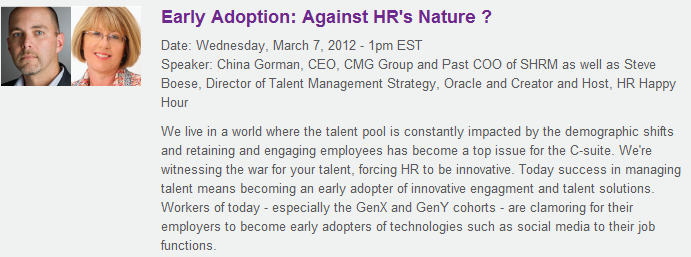Hank Aaron and the right way to succeed
Last weekend I made my (usually) annual trip to the Baseball Hall of Fame and Museum in lovely Cooperstown, NY. If you are a baseball fan, or just an American History fan, you owe it to yourself to make the trip sometime. It is a small village, and not the easiest to reach by air, (Syracuse would be the closest thing to a 'real' airport, and that is about 90 miles away), but you won't spend a better summer weekend anywhere else.
One of the newer museum exhibits, dedicated in 2009, is titled Hank Aaron: Chasing the Dream, which chronicles the career and life of baseball legend, and former career home run champion Hank Aaron.
Here's Hank's official bio from the Hall of Fame site:
Exhibiting an understated style that became his trademark, Hank Aaron became the all-time home-run champion via one of the most consistent offensive careers in baseball history, with 3,771 hits. In addition to his 755 home runs, he also set Major League records for total bases, extra-base hits and RBIs. Aaron was the 1957 National League MVP, won three Gold Gloves for his play in right field and was named to a record 25 All-Star squads.
Even the official bio is understated. It is almost impossible to grasp the amazing baseball achievements of Hank Aaron, particularly in the modern age where accomplishments less than a quarter of Aaron's are rewarded with hundred million dollar contracts, endless product endorsement deals, and off the field time spent chasing models and actresses.
Aaron's baseball standards for home runs, (surpassed only by a guy who certainly used performance enhancing drugs, and spent his spare time being a jerk to anyone that came into contact with him), runs batted in, and total bases place him at the absolute pinnacle of success in what was America's most popular sport. And his success, particularly when considering the barrage of racist harassment, hate mail, and even death threats that Aaron had to endure in 1973 and 1974 as he pursued and eventually surpassed baseball icon Babe Ruth's then home run record, has to be thought of as on par with Ruth, Gehrig, Mays, and maybe one or two more, as the greatest in the history of the game.
But oddly, we don't really talk about Aaron all that much. We still talk about Ruth and a few other heroes of the early age of baseball who are still recalled almost reverently. Jackie Robinson, the major league's first African-American player is remembered, rightly, as a courageous leader and legend whose importance to not only baseball but race relations in the USA can't possibly be diminished. And the recent set of players, some of whom have broken Aaron's and other records, well so many of them left and will leave the game tainted by the notion that steroid and other performance enhancing drug use contributed to their success as much as natural talent and hard work. Those stories have dominated baseball coverage for the last five years or so, and this focus will likely only intensify as many of these so called steroid-era players become eligible for Hall of Fame consideration themselves.
But above and despite all this, Aaron remains, like he was in his days as a player, classy, reserved, composed, and a champion. But not just a champion and a model for success in sports, a model for how to succeed in life, and, more interestingly, how to carry oneself once success has been achieved.
Aaron provides a lesson for all of us. That we can still play and win the right way. We can be both humble, respectful, and proud at the same time. That our achievements don't have to come at the expense of others, in fact, they often arise in spite of others.
That in the end, baseball, like all games, is really just a game, and all games come to an end.
But class, that lives forever.

 Steve
Steve



